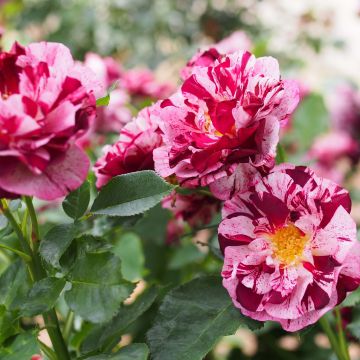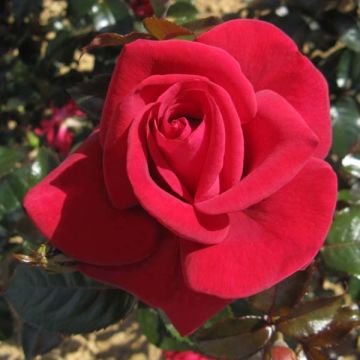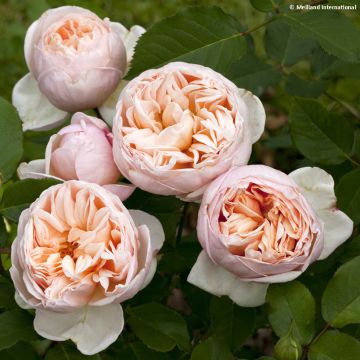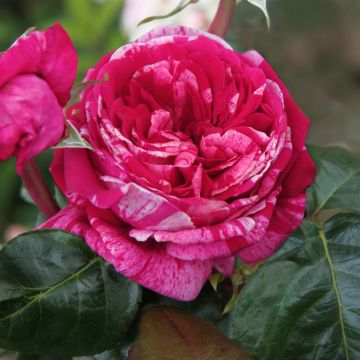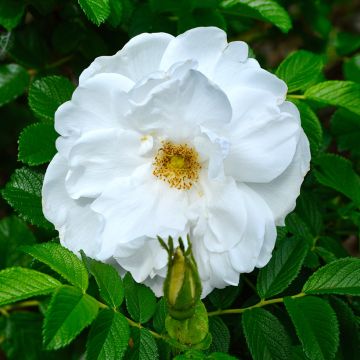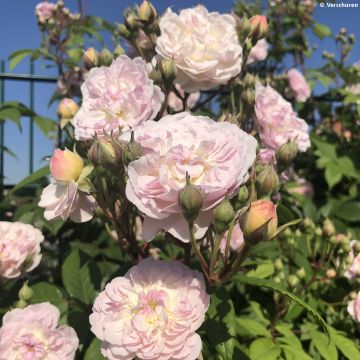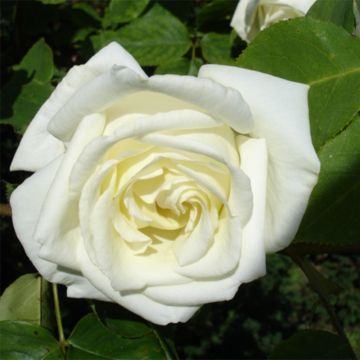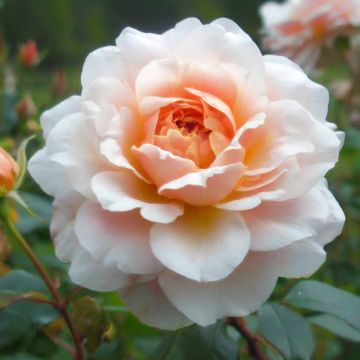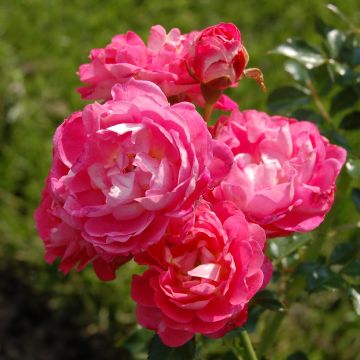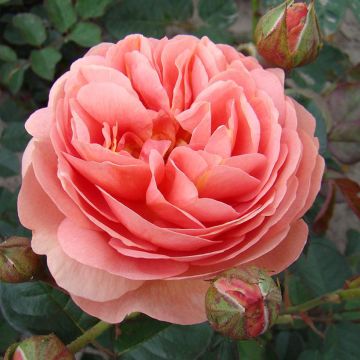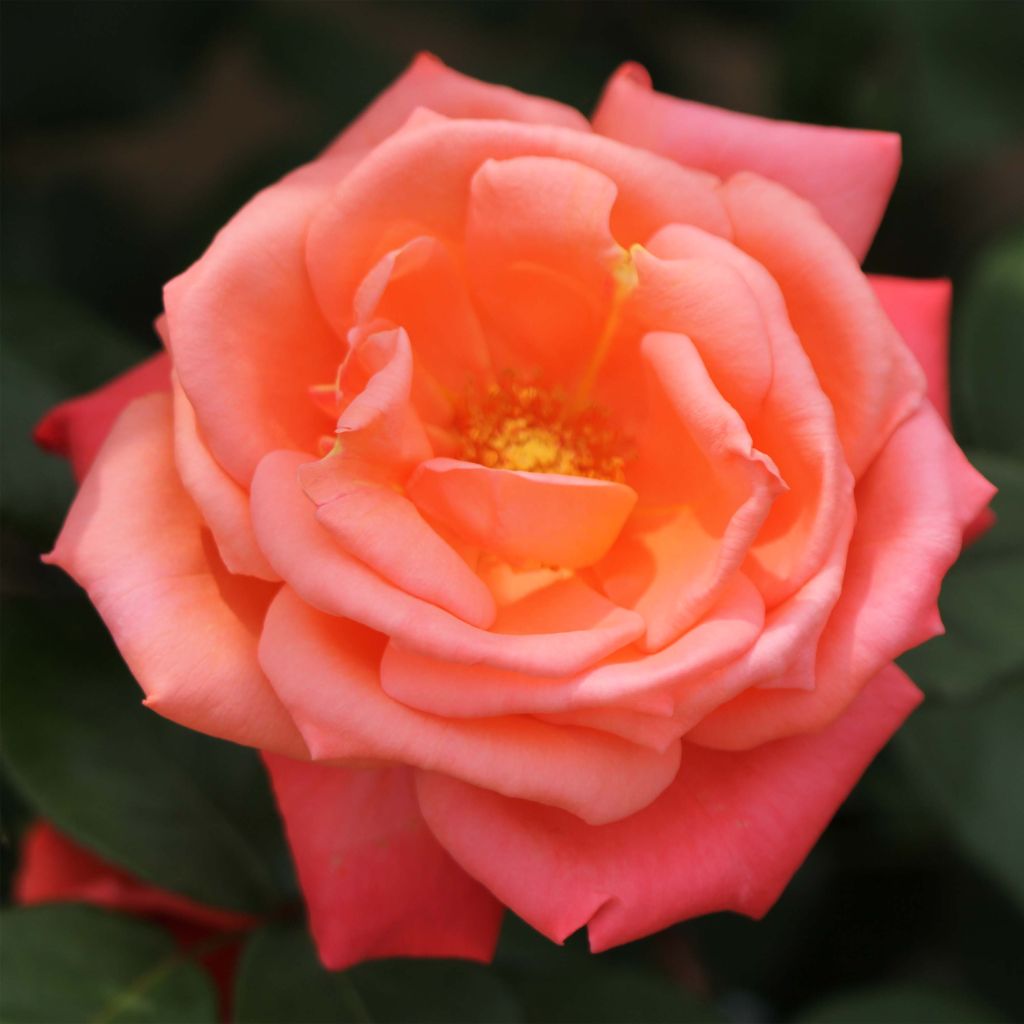

Rosa 'Catherine Deneuve' - Hybrid Tea Rose
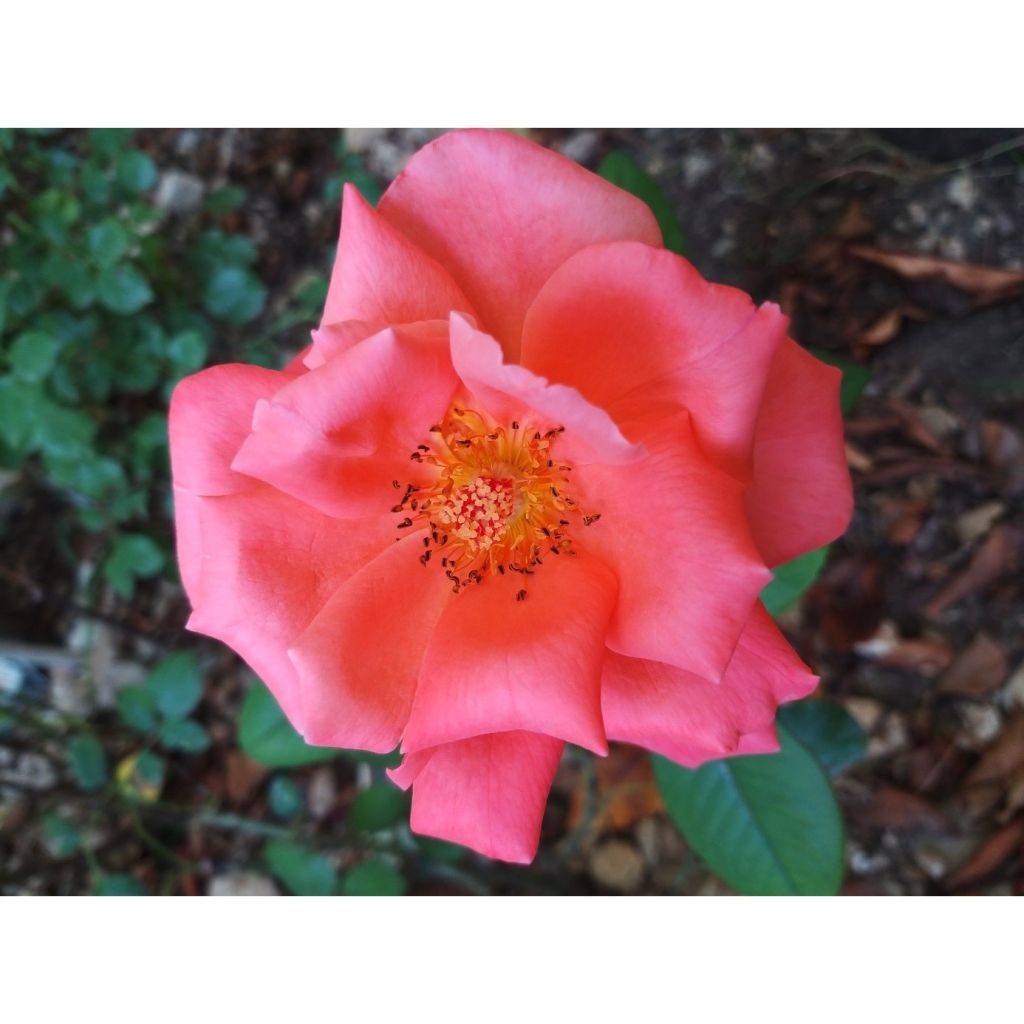

Rosa 'Catherine Deneuve' - Hybrid Tea Rose
Rosa 'Catherine Deneuve' - Hybrid Tea Rose
Rosa Catherine Deneuve® 'Meipraserpi'
Meipraserpi
This item cannot be shipped to the selected country
Delivery charge from €5.90
Delivery charge from €5.90
Delivery to Corse prohibited
More information
Delivery charge from €5.90
Delivery charge from €5.90
Delivery to Corse prohibited
More information
Schedule delivery date,
and select date in basket
This plant carries a 24 months recovery warranty
More information
We guarantee the quality of our plants for a full growing cycle, and will replace at our expense any plant that fails to recover under normal climatic and planting conditions.
From €5.90 for pickup delivery and €6.90 for home delivery
Express home delivery from €8.90.
From €5.90 for pickup delivery and €6.90 for home delivery
Express home delivery from €8.90.
Delivery to Corse prohibited: UE law prohibits the import of this plant from mainland France to Corse as part of the fight against Xylella fastidiosa. Please accept our sincere apologies.
More information
Does this plant fit my garden?
Set up your Plantfit profile →
Description
The 'Catherine Deneuve' Rose is an elegant and distinguished modern hybrid tea rose, probably as famous in the world of roses as the actress of the same name in the world of cinema. Highly resistant to diseases, this variety is a classic in our gardens. It is appreciated for its large, perfect flowers with salmon pink to pale pink and very bright colours and a light fragrance with citrus notes. Produced abundantly from May until the first frost, its roses are as decorative in the garden as they are in bouquets.
'Catherine Deneuve' or 'Meipraserpi' is a modern bush rose with large flowers obtained by Meilland in 1981. This excellent variety has received several awards, including the gold medal in Rome 1979. It is a dense, bushy, and upright shrub, a little stiff, which reaches about 90 cm (35in) in height and 60 cm (24in) in width at maturity, with rapid growth. It produces solid, green, slightly thorny and well-branched branches, which bear exquisite foliage of a relatively dark green with a glossy finish, highly resistant to diseases. Throughout the growing season, if care is taken to remove faded flowers, the plant continuously produces large cup-shaped flowers with a diameter of 12 cm (5in), with a typical campanulate shape of hybrid tea roses. They are composed of 20 to 25 long and wide petals with rolled edges, with a warm colour: initially pink to red, they turn salmon pink and then orange on the front as hours go by, but are nuanced with a soft yellow on the reverse. At full bloom, a small bouquet of golden yellow stamens appears in the centre of the corolla. The flowers are solitary and carried at the end of long shoots from the current year or emerging on 2-year-old stems. A slight fruity and rustic fragrance characterises the repeat flowering.
This 'Catherine Deneuve' rose is as elegant in the garden as in bouquets. To accompany it, choose from perennial plants with light flowering (autumn asters, foxgloves, penstemons), grasses, and nepetas, which are ideal for enhancing its beauty and accompanying it late in the season. For example, pair it with Geranium Rozanne, Geranium Pink Cloud, Geranium grandiflorum, Panic, Nepeta Walker's Low, and Campanulas. It will also look good on its own, for example, in groups of 3 plants and in a large pot on your terrace or balcony. Its flowers make gorgeous romantic bouquets alongside white peonies and white lilacs as well.
Rosa 'Catherine Deneuve' - Hybrid Tea Rose in pictures
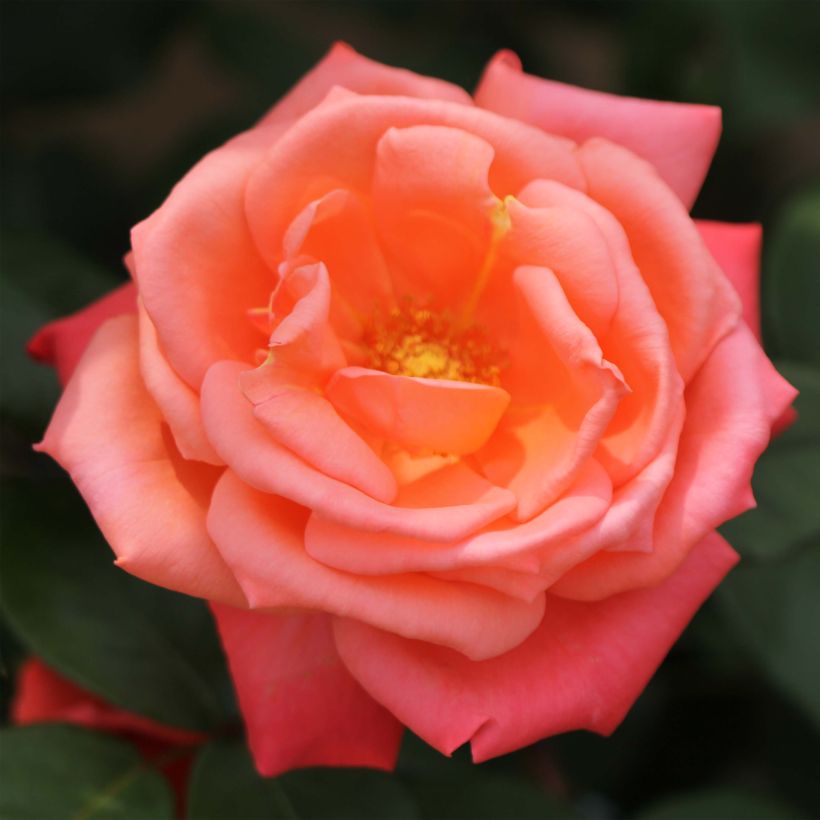

Plant habit
Flowering
Foliage
Botanical data
Rosa
Catherine Deneuve® 'Meipraserpi'
Rosaceae
Meipraserpi
Cultivar or hybrid
Rosa multiflora (4L/5L pot, Wrapped bare root)
Other Large-flower tea Roses
Planting and care
To plant your 'Catherine Deneuve' rose, choose a sunny or lightly shaded spot with well-worked soil that is not too heavy and has enough nutrients. Avoid planting in poor and excessively dry soils. Prepare the soil by crumbling it and adding an amendment, such as blood, fish and bone, at the bottom of the planting hole. After planting, water abundantly to remove air pockets and continue to water regularly for a few weeks to help the roots establish.
Pruning modern repeat flowering roses is important for flowering and should be done in three stages:
1. Regular maintenance pruning: During the season, regularly shorten the flowering branches and remove faded flowers along with their stem, leaving 2 or 3 leaves to encourage repeat flowering.
2. Preparatory autumn pruning: Lightly prune in preparation for the 'main' spring pruning. Note: This is not recommended in regions with cold winters as this could weaken the bush.
3. Spring pruning: In February-March, when the buds have become shoots 2 to 3 cm (1in) long, prune the young, strong branches to one-quarter of their length.
When pruning, always aim to remove dead wood, diseased branches, and weak shoots while opening up the centre of the bush. Retain the most vigorous branches, generally 3 to 6 well-positioned, to maintain an attractive habit. Always prune at a slant ½ cm or 1 cm (0in) above an outward-facing bud.
Roses may develop unsightly spots at the end of summer, but this is a natural occurrence and doesn't harm the rose's growth.
Planting period
Intended location
Care
Roses by purpose
Haven't found what you were looking for?
Hardiness is the lowest winter temperature a plant can endure without suffering serious damage or even dying. However, hardiness is affected by location (a sheltered area, such as a patio), protection (winter cover) and soil type (hardiness is improved by well-drained soil).

Photo Sharing Terms & Conditions
In order to encourage gardeners to interact and share their experiences, Promesse de fleurs offers various media enabling content to be uploaded onto its Site - in particular via the ‘Photo sharing’ module.
The User agrees to refrain from:
- Posting any content that is illegal, prejudicial, insulting, racist, inciteful to hatred, revisionist, contrary to public decency, that infringes on privacy or on the privacy rights of third parties, in particular the publicity rights of persons and goods, intellectual property rights, or the right to privacy.
- Submitting content on behalf of a third party;
- Impersonate the identity of a third party and/or publish any personal information about a third party;
In general, the User undertakes to refrain from any unethical behaviour.
All Content (in particular text, comments, files, images, photos, videos, creative works, etc.), which may be subject to property or intellectual property rights, image or other private rights, shall remain the property of the User, subject to the limited rights granted by the terms of the licence granted by Promesse de fleurs as stated below. Users are at liberty to publish or not to publish such Content on the Site, notably via the ‘Photo Sharing’ facility, and accept that this Content shall be made public and freely accessible, notably on the Internet.
Users further acknowledge, undertake to have ,and guarantee that they hold all necessary rights and permissions to publish such material on the Site, in particular with regard to the legislation in force pertaining to any privacy, property, intellectual property, image, or contractual rights, or rights of any other nature. By publishing such Content on the Site, Users acknowledge accepting full liability as publishers of the Content within the meaning of the law, and grant Promesse de fleurs, free of charge, an inclusive, worldwide licence for the said Content for the entire duration of its publication, including all reproduction, representation, up/downloading, displaying, performing, transmission, and storage rights.
Users also grant permission for their name to be linked to the Content and accept that this link may not always be made available.
By engaging in posting material, Users consent to their Content becoming automatically accessible on the Internet, in particular on other sites and/or blogs and/or web pages of the Promesse de fleurs site, including in particular social pages and the Promesse de fleurs catalogue.
Users may secure the removal of entrusted content free of charge by issuing a simple request via our contact form.



































